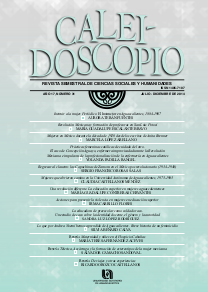Mexican Revolution and teacher training for women in San Luis Potosí
DOI:
https://doi.org/10.33064/31crscsh534Keywords:
Mexican revolution, Normalism, women’s educationAbstract
The Mexican Government had the purpose of training teachers of primary school since the legislation of 1849. But the social and political conditions of the country before and during the Mexican Revolution restrained the access of young women to the Normal School. With the first revolutionary governments, the two Normal Schools that existed in San Luis Potosí, one for men and another for women, were united in one school. But the curriculum was differentiated by gender, and the selection of students and their permanence in the Normal School was determined also by gendered values. In this context some women students expressed their ideas about equality in education, and the first revolutionary government started to promote women’s education by launching a curricular reform. Besides that, some women students demanded equality in their access to the knowledge, and they managed to study Political Economy, a course that only men studied at that moment, and some women students participated also in the strikes of 1930 and 1931.Downloads
Downloads
Published
How to Cite
Issue
Section
License
Licencia Creative Commons Atribución-NoComercial-CompartirIgual 4.0 Internacional
El lector es libre de compartir o adaptar el material en cualquier medio o formato bajo las condiciones siguientes: (a) debe reconocer adecuadamente la autoría, proporcionar un enlace a la licencia e indicar si se han realizado cambios; (b) no puede utilizar el material para una finalidad comercial y (c) si remezcla, transforma o crea a partir del material, deberá difundir sus contribuciones bajo la misma licencia que el original.
Resumen de la licencia
https://creativecommons.org/licenses/by-nc-sa/4.0/deed.es_ES
Texto completo de la licencia
https://creativecommons.org/licenses/by-nc-sa/4.0/legalcode
Cada autor es responsable del contenido de su artículo. En el caso de un texto colectivo, el primer autor asume la responsabilidad intelectual de los resultados del proceso editorial; los autores son responsables de obtener la licencia de autor para reproducir materiales gráficos o fotográficos que pertenecen a terceros.
Los autores asumen plena responsabilidad en el caso de falsificación de datos o falta de autenticidad en la investigación. Se comprometen, también, a no reutilizar trabajos ya publicados, total o parcialmente, para presentarlos en otra publicación.
Estas condiciones aplican tanto a la versión impresa como a la versión electrónica de la revista.


















